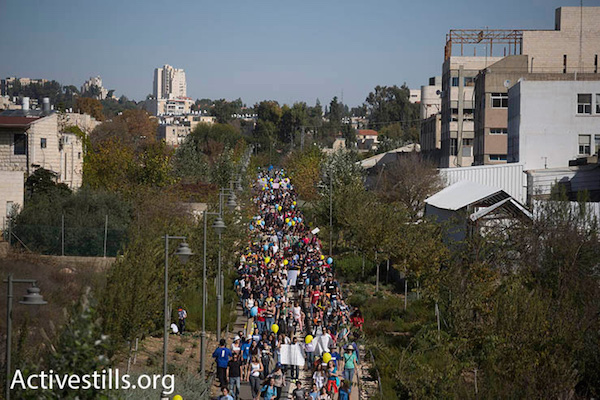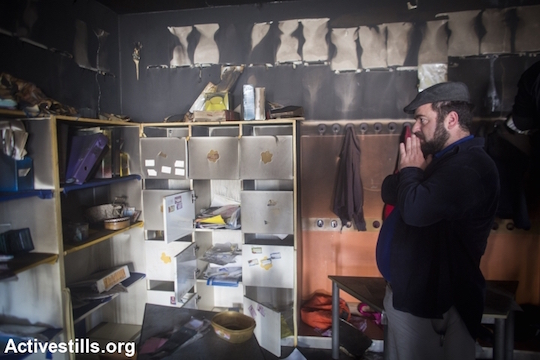For years, Jerusalem’s bilingual school gave an entire community reason to believe in hope and partnership. In Israel of today, it is nothing short of a miracle.

Today is the first day of September, the first day of school in Israel. Putting aside the years we lived abroad, this is the first time in 13 years that we are not sending our daughters to the Max Rayne “Hand in Hand” bilingual school in Jerusalem.
The process of deciding which school to send one’s child begins at a very early age. As young parents, it was clear to us that we didn’t want anything “special,” and that it would be best to send our girl to the neighborhood preschool, since this was her natural environment and it was important for her to learn about it. At the end of the year, after fundamental disagreements over the need for four year olds to prepare packages for Israeli soldiers and questions on who is authorized to teach them about Jewish holidays, we began looking elsewhere.
There are some schools of thought that argue that schooling and education are far less critical than what we tend to think. Perhaps this is true. Our entire family — not just our daughters — would not be who we are today without the bilingual school.
It is difficult for me to speak nostalgically, since not long has passed since we parted, and because we will remain part of the school’s community. And yet, as I write these words memories come flooding back — moments of overcoming and laughter, as well as pain and frustration. The singing in Hebrew and Arabic — full of hope and light — at the beginning of every school year, the first words they learned to write in both languages, the infamous arson, the hateful graffiti repeatedly spray-painted on the walls, the joint Iftar meal, the tours to destroyed Palestinian villages.

There were also, of course, the astonished/worried/angry responses we received when we signed up our older daughter, including the question that seemed to repeat itself over and over: “What will happen if she marries an Arab when she grows up?” to which I would always answer: “I’ll learn how to make maqluba for Friday night dinners,” and so I did. Others wanted to know whether she and her sister would grow confused over their Jewish identity.
That question seems so baseless now. In their years at the school, my daughters likely dealt with their own Jewish identity much more than their peers who went to schools in which that identity was a given. At the bilingual school they learned to understand their Jewish identity without viewing it as a threat to or threatened by other religious and national identities. They learned to understand their Judaism not as an exclusivist identity that dictates power relations vis-a-vis other identities in this country, but rather as part of a rich cultural mosaic of which they are a part.
Our years at the school overlapped with the frightening escalation of extremism and fascism in Israel. It is difficult to imagine how we would have made it without this community, which offered us sanity and comfort. When we returned to Israel in the summer of 2014, straight into that cursed war, the joint marches organized by the school — without chanting, only marching together — were like a breath of fresh air in a reality where there was very little.
Like every educational institution, the bilingual school has its share of difficulties of problems. But it also encapsulates concepts that have long become cliches in Israeli society: respect, recognition, cooperation. In the Israel of today, this place is a kind of miracle, and I am grateful and proud that we were given the opportunity to be part of it for over a decade.
It will be very strange to start the year without the bilingual calendar, without knowing the date of Muhammad’s birthday or when the Eastern Orthodox Church celebrates Christmas. On the other hand, I know it’s not really goodbye. We will continue to be part of the community. If there is still meaning behind the word “hope” in this place, it can be found there — between the hallways of a school on the border between the Palestinian neighborhood of Beit Safafa and the Jewish neighborhood of Pat.
This post was originally published in Hebrew on Local Call. Read it here.

